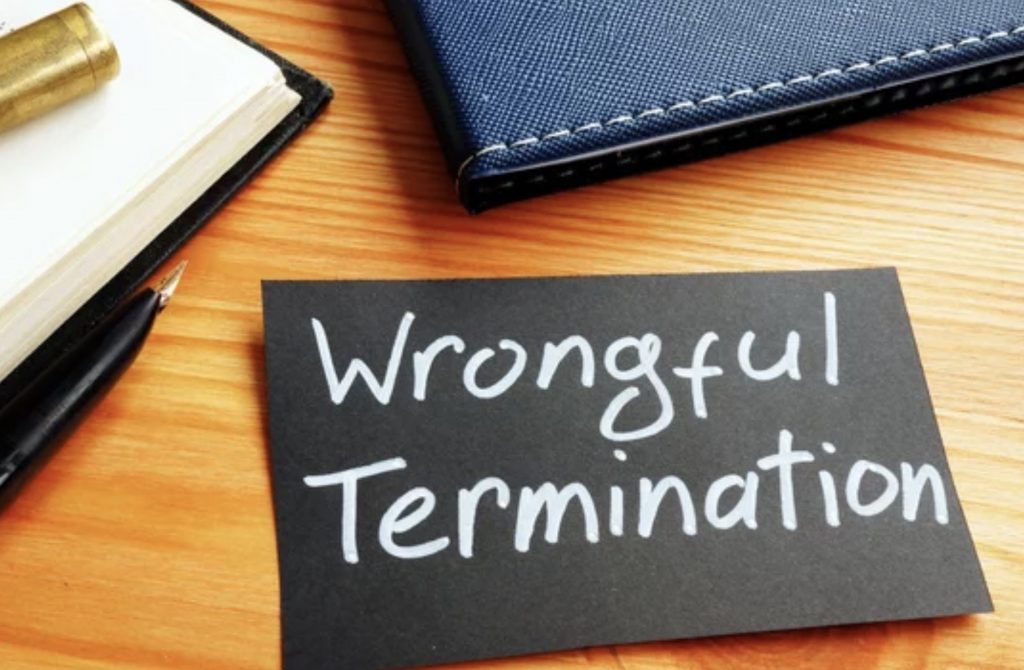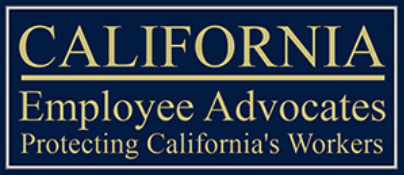Employment Law Changes in California for 2022
This year’s new laws included several employment-related bills signed by Governor Gavin Newsom, including bills aimed at prohibiting quotas that interfere with employees’ ability to take breaks and combatting wage theft and wage/hour violations by garment manufacturers.
The following is a summary of the new laws that have the most impact on employers across the state. All bills are effective starting January 1, 2022, unless otherwise stated:
I. COVID-19
A. Cal/OSHA Covid-19 Emergency Temporary Standard
The new regulations encompassed in the ETS will take effect on January 14, 2022. Cal/OSHA’s ETS applies to most employees not covered by the Aerosol Transmittable Disease Standard.
Changes include:
1. Employers must make no-cost Covid-19 testing available on paid time to all employees who are exposed to Covid-19 at work (either as a “close contact” or as part of an “exposed group” in an outbreak situation) including asymptomatic fully vaccinated employees;
2. Employees exempted from face covering requirements due to medical or mental health conditions or disabilities and who cannot wear a non-restrictive alternative must physically distance from other employees (six feet) and be tested at least twice weekly at no cost and during paid time;
3. Employees who have “close contact” with a Covid-19 case and are not excluded from work because they are asymptomatic and either fully vaccinated or recently recovered from Covid-19 as described in the regulations will have to both wear a face covering and physically distance at the workplace for 14 days following the last close contact;
4. Employees who are excluded from work after a “close contact,” never develop symptoms, and test negative with a specimen taken at least five days after the last known close contact may return to work after seven days, provided they wear a face covering and physically distance for 14 days following the last close contact;
5. The time frames relating to the exclusion or return to work of Covid-19 exposures and cases will automatically adjust to be consistent with California Department of Public Health (CDPH) guidelines. Note also, current CDPH guidance on face coverings, also incorporated into the Cal/OSHA ETS, requires all individuals to wear face coverings in “indoor public settings” regardless of vaccination status. Employers in certain industries are required to rehire employees previously laid off due to Covid-19. On April 16, 2021, Governor Newsom signed SB 93. This law, commonly referred to as a “right of recall,” requires employers in certain industries—hotels, private clubs, event centers, airport hospitality operations and service providers, and building services such as janitorial, maintenance, or security—to make written job offers to qualified employees laid off due to the Covid-19 pandemic. Qualified employees are defined as (1) employees who were employed by covered employers for six months or more during the 12 months before January 1, 2020, (2) who performed at least two hours of work for the employer, and (3) whose most recent separation from active service was due to the Covid-19 pandemic. Under this law, if an employer intends to fill a position, it must first offer the position to a laid off employee who is qualified for the position. If more than one employee is qualified for a position, the employer must offer the position to the laid off employee with the greatest length of service based on the date of hire. An employer who declines to rehire a laid off employee for the same or similar position the employee held at the time of the Covid-19 lay off due to lack of qualifications and instead hires someone other than a laid-off employee must provide the employee a written notice including the reasons for the decision and other information on those hired. This law will remain in effect until December 31, 2024.
6. More changes: The Federal OSHA issued an ETS for employers of 100 or more employees that includes a “vaccinate or test” requirement (OSHA ETS). Litigation over the OSHA ETS is pending, but as of the date of this article, the OSHA ETS is in effect. However, OSHA has indicated it will postpone issuing citations for any violations of the OSHA ETS before January 10, 2022. The validity of the OSHA ETS is set for hearing before the U.S. Supreme Court on January 7, 2022. Because California has its own state OSHA plan, Cal/OSHA must adopt the federal OSHA ETS or a standard that is “at least as effective.” The state ordinarily would have 30 days from issuance of the OSHA ETS to act; however, due to the pending litigation, California has not yet announced its plan to meet the federal standard.
Covid-19 regulations on the state and federal level continue to evolve, so employers should monitor the status of federal OSHA and Cal/OSHA ETS now and in 2022. Federal contractors and subcontractors should also monitor the status of Executive Order 14042, and its vaccine mandate for covered contractor employees. Those requirements are currently stayed and are expected to be reviewed by the U.S. Supreme Court.

B. SB 606 Expansion of Cal/OSHA’s Authority
1. SB 606 creates two new categories of violations for Cal/OSHA penalties: “enterprise-wide” and “egregious.” A rebuttable presumption of an “enterprise-wide” violation arises where an employer has multiple worksites and either (1) has a written policy or procedure that violates safety rules (not including emergency regulations adopted within the last 30 days) or (2) Cal/OSHA has evidence of a pattern or practice of the same violations at more than one worksite. Unless the employer rebuts the presumption, Cal/OSHA can issue an enterprise-wide citation requiring abatement, including at locations where no violations were found.
2. An “egregious” violation” may occur where the employer intentionally makes no reasonable effort to eliminate a known violation, has an extensive history of prior violations, intentionally disregarded health and safety responsibilities, or engages in conduct amounting to clear bad faith; where violations result in worker fatalities, inpatient hospitalization of three or more employees (a “catastrophe”), a large number of injuries or illnesses or persistently high rates of illness or injury; or where a large number of violations significantly undermine the effectiveness of the health and safety program. Cal/OSHA is required to issue a citation for an egregious violation. Penalties for an “egregious” violation are assessed on a per employee basis.
II. Equal Opportunity
A. SB 331 Confidentiality Clauses in Employee Settlement and Separation Agreement
1. Starting on January 1, 2022, the prohibition on confidentiality clauses in settlement agreements in sexual harassment and discrimination cases will also apply to claims based on all protected categories including, race, religion, national origin, ancestry, disability, medical condition, familial status, gender, and age. The new law, however, retains the provision that allows the settlement amount to be subject to confidentiality.
2. Similarly, the prohibition on non-disparagement clauses barring an employee from disclosing information about sexual harassment was extended to all protected categories. The new law requires that non-disparagement clauses include the following language: “Nothing in this agreement prevents you from discussing or disclosing information about unlawful acts in the workplace, such as harassment or discrimination or any other conduct that you have reason to believe is unlawful.”
SB 331 also affects the enforceability of separation agreements. Under the new law, it is illegal for a current or former employer to include in a separation agreement any provision that prohibits the disclosure of information about unlawful acts in the workplace. In addition, separation agreements must now notify the employee that (1) they may consult an attorney, and (2) have at least five business days to do so. However, an employee may execute a separation agreement before the end of the five business-day period so long as such execution is knowing and voluntary, and is not induced by the employer through fraud, misrepresentation, or a threat to withdraw or alter the offer before the end of the five-business-day period. As with settlement agreements, the amount paid as consideration for the separation may remain subject to confidentiality.
B. SB 807 Retention of Personal Records
SB 807 changes FEHA requirements for employers to maintain and preserve any personnel records. Employers must now preserve these records for a minimum of four years, and possibly longer if a DFEH complaint has been filed. Previous law required preservation of such records for two years. SB 807 also makes procedural modifications to statutory deadlines that the DFEH or employees must meet in order to enforce civil rights laws.
III. Required Posters
A. SB 657 Workplace Posters
SB 657 provides that employers may distribute required workplace postings by email, which is ideal for providing notice to remote workers. Email distribution does not change the employer’s obligation to physically display the required posting.
IV. California Family Rights Act
A. AB 1033 Amends California Family Rights Act
On January 1, 2021, SB 1383 made significant changes to the California Family Rights Act (CFRA), including expansion of the law to cover employers of five or more employees. AB 1033 “cleans up” this expansion by adding a “parent-in-law” to the list of family members for whose care an employee may take CFRA leave. AB 1033 also makes procedural changes to the small employer mediation program for employers with 5 to 19 employees, which is in effect until January 1, 2024.
V. Wage and Hour
A. SB 646 Potential PAGA Exception for Janitorial Employees Represented by Unions
1. The Private Attorneys General Act of 2004 (PAGA) allows aggrieved employees to bring a civil action to recover specified civil penalties that would otherwise be assessed and collected by the Labor and Workforce Development Agency (LWDA) on behalf of the employee and other current or former employees for violations of wage and hour laws. SB 646 exempts janitorial employees from PAGA claims if they are (1) represented by a labor organization that has represented janitors before January 1, 2021, and (2) employed by a janitorial contractor who has registered with the commissioner as a property service employer in calendar year 2020, with respect to work performed under a valid collective bargaining agreement (CBA) in effect any time before July 1, 2028. The CBA must contain certain provisions, including a grievance and binding arbitration procedure to redress violations that authorizes the arbitrator to award otherwise available remedies.
2. SB 646 does not apply to existing cases filed before January 1, 2022, and does not prevent a janitorial employee from filing certain actions, such as complaints under the Fair Employment and Housing Act.
B. SB 62 Prohibition of Piece-Rate in the Garment Industry
SB 62 prohibits employers in the garment manufacturing industry from paying their employees by the piece rate. The bill would impose compensatory damages of $200 per employee against a garment manufacturer or contractor, payable to the employee, for each pay period in which the employee is paid by the piece rate. SB 62 also expands the definition of garment manufacturing to include dyeing, altering a garment’s design, and affixing a label to a garment. Garment manufacturers, contractors, or brand guarantors who contract with another person in garment manufacturing operations share joint and several liability with any manufacturer and contractor for the full amount of unpaid wages, and any other compensation, including interest, due to employees who performed work in violation of this law.
C. AB 1003 Expansion of Criminal Penalties for Wage Theft
1. Under existing law, an individual commits grand theft when they take the money, labor, or real or personal property of another in excess of $950. Grand theft is generally punishable either as a misdemeanor or as a felony.
2. AB 1003 makes the intentional theft of wages, including gratuities, in an amount greater than $950 from any one employee, or $2,350 in the aggregate from two or more employees, by an employer in any consecutive 12-month period punishable as grand theft. AB 1003 authorizes wages, gratuities, benefits, or other compensation that are the subject of a prosecution under this law to be recovered as restitution. For purposes of this law, independent contractors are included within the meaning of employee, and entities who hire independent contractors are included within the meaning of employer.
D. SB 572 Real Property Liens for Amounts Due to the Labor Commissioner
The Labor Commissioner has the authority to hear employee complaints regarding the payment of wages and other employment-related issues. Various civil penalties may be imposed for failure to pay wages. SB 572 authorizes the Labor Commissioner to create, as an alternative to a judgment lien, a lien on real property to secure amounts due to the Commissioner under any final citation, findings, or decision. The bill requires, among other things, that the Commissioner include specified information on the certificate of lien to be recorded on the relevant party’s real property, and to issue a certificate of release once the amount due, including any interest and costs, has been paid.
E. State Minimum Wage Increase
On January 1, 2022, California’s minimum wage increases to $15 per hour for employers of 26 or more employees, and $14 per hour for employers of 25 or fewer employees. Minimum salaries for California’s white-collar exemptions, which are based on the minimum wage, will also increase. Employers should also remember to check local minimum wage laws as many require higher hourly rates.
F. SB 639 Phase-Out of Sub-Minimum Wage Certificate Program for Persons with Disabilities
Under existing law, the Industrial Welfare Commission is permitted to issue an employee who is mentally or physically disabled, or both, a special license authorizing the payment of less than the minimum wage for a period of one year. This new law phases out that exception. As of January 1, 2022, no new licenses may be issued, and by January 1, 2025, any disabled employee who has received the special license in the past, must be paid the applicable minimum wage.
G. SB 338 Port Drayage Motor Carriers: Amendments to the Labor Code 2810.4
1. The Division of Labor Standards Enforcement (DLSE) posts on its website a list of port drayage motor carriers with unsatisfied court judgments, tax assessments, tax liens, or any order, decision, or award finding that the port drayage motor carrier has engaged in illegal conduct, including failure to pay wages, imposing unlawful expenses on employees, and other labor law violations.
2. Current law imposes joint and several liability on the port drayage motor carrier, and any customer that obtained port drayage services after the date the port drayage motor carrier appeared on the DLSE’s list, for all civil legal responsibility and liability owed to a port drayage driver. SB 338 amends current law to include joint liability for employment tax assessments and failure to comply with health and safety laws. In addition, this bill changes previous law to require the DLSE to post the specified information for offending port drayage motor carriers even if all periods for appeals have not expired.
H. AB 701 Warehouse Distribution Centers: New Rules about Employee Quotas
1. Under AB 701, California employers with 100 or more employees at a single “warehouse distribution center” or 1,000 or more employees at one or more “warehouse distribution centers” located in the state of California, must now provide certain quota disclosures to nonexempt employees. Notably, employees cannot be required to meet a quota that prevents compliance with meal or rest periods, use of bathroom facilities, or occupational health and safety laws. This new law also prohibits an employer from taking adverse action against an employee for failure to meet a quota that has not been disclosed or for failure to meet a quota that does not allow a worker to comply with meal or rest periods or occupational health and safety laws.
2. Moreover, AB 701 provides that if a current or former employee believes that meeting a quota caused them to miss a meal or rest period or required them to violate any occupational health and safety law or standard, they have the right to request, and the employer is required to provide, a written description of each quota to which the employee is subject, and a copy of the most recent 90 days of the employee’s own personal work speed data. AB 701 would also allow a current or former employee to bring an action for injunctive relief to obtain compliance with specified requirements, and, if they prevail in the action, recover costs and reasonable attorney’s fees.
I. SB 362 Chain Community Pharmacies: Quota Restrictions
SB 362 prohibits a “chain community pharmacy”—defined as a chain of 75 or more stores in California under the same ownership—from establishing “quotas” that pharmacists must meet in their job performance. Under the statute, “quota” includes a fixed number or formula related to any of the following: (A) prescriptions filled; (B) services rendered to patients; (C) programs offered to patients; and (D) revenue obtained.
J. Important California Supreme Court Decisions
Employers should be aware of two important California Supreme Court decisions that affect timekeeping practices and payments for noncompliant breaks in California. Reported in Donohue v. AMN Services, LLC, the Court held that rounded time punch entries cannot be used to comply with California meal period laws. Further, time records showing non-compliant meal periods create a rebuttable presumption of meal break violations. While the holding is limited to meal period time punches, the Court’s ruling has potential implications on the use of rounding of time punches in general. The California Supreme Court’s unanimous decision in Ferra v. Loews Hollywood Hotel, LLC., held that the phrase “regular rate of compensation” for premium payments for missed breaks under Labor Code section 226.7 is synonymous with the phrase “regular rate of pay” for overtime purposes, which encompasses all nondiscretionary payments such as commissions or production bonuses, not just hourly wages.
VI. Public Works and Construction
A. SB 727 Expansion of Construction Contractor Liability for Subcontractor Employees Wages
Under Labor Code section 218.7, for contracts entered into on or after January 1, 2018, a direct contractor making or taking a contract in California for the erection, construction, alteration, or repair of a building, structure, or other private work may be liable for any unpaid wages, benefits, or contributions that any subcontractor fails to pay to its workers. Labor Code section 218.7 limited the direct contractor’s liability to any unpaid wage, fringe or other benefit payment or contribution, including interest owed, and provided that liability does not extend to penalties or liquidated damages. SB 727 adds Labor Code section 218.8 to extend contractor liability to potentially include penalties, liquidated damages, and interest owed by the subcontractor for contracts entered into on or after January 1, 2022.

B. Contractor Recordkeeping
Current law provides that each contractor or subcontractor on a public works project must furnish certain payroll records directly to the Labor Commissioner on at least a monthly basis and in a format the Labor Commissioner prescribes. AB 1023 revises this requirement to mandate that the contractor or subcontractor furnish these payroll records at least once every 30 days while work is being performed, and within 30 days after the final day of work performed on the project. The new law also requires that the contractor or subcontractor furnish these records in the Labor Commissioner prescribed electronic format on the department’s website. Contractors or subcontractors who fail to furnish the required records are liable for a penalty of $100 per day, not to exceed $5,000 per project
VII. Independent Contractors
A. AB 1561 and AB 1506 Extension and Clarification of AB 5 Exemptions
1. Passed in 2019, AB 5 codified what is commonly known as the “ABC” test to determine if workers are employees or independent contractors. This law contains a number of exemptions which allow the common law “Borello”test to be used to determine whether a worker is an employee or independent contractor instead of the strict ABC test. AB 1561 extends or clarifies some of these exemptions.
2. Initially, AB 5 exempted construction trucking industry contractors/subcontractors and licensed manicurists from the ABC test until January 1, 2022. Rather than allow those exemptions to lapse on January 1, 2022, AB 1561 extends them until January 1, 2025.
3. AB 1561 also clarifies the exemption for the relationship between “data aggregators” and those from whom they collect information by providing a specific definition of a “research subject.”
4. For the insurance industry exemption, AB 1561 clarifies that the exemption extends to claims administration and third-party administrator work, as defined.
5. AB 1561 also makes clarifications to the exemption for manufactured home salespersons.
6. A separate bill, AB 1506, extends the AB 5 exemption allowing the Borello test to apply to newspaper carriers until January 1, 2025, and requires newspaper distributors to provide certain information to the LWDA.
K. Lee PhD is an employment law specialist with extensive experience helping California workers navigate the challenges of California employment law complexities. If you feel you have been a victim of workplace or employment law violations please schedule a free review and strategy session today. Schedule Now


I worked for a security company I was never given breaks or lunch.never paid over time or sick days. When asked I was told “we don’t pay over time or sick pay” then my hours were cut from 40+ a week to 25 over night then I was terminated.
There is evidently a bunch to know about this. I believe you made some nice points in features also.